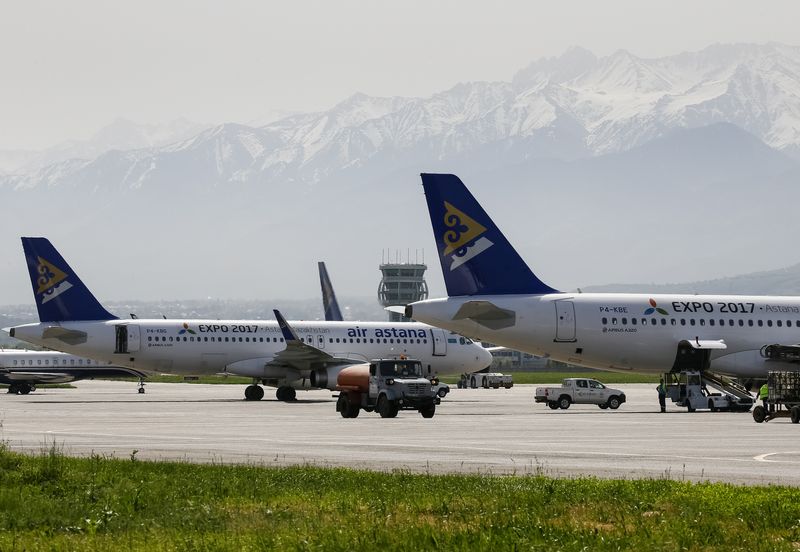Kazakh airline says business is booming as Russia loses traffic
2023.03.29 09:18

© Reuters. FILE PHOTO: Air Astana planes are seen on the tarmac of Almaty International Airport, Kazakhstan, May 15, 2017. REUTERS/Shamil Zhumatov
ALMATY (Reuters) – Kazakhstan’s flagship airline, Air Astana, is speeding up its expansion plans to take advantage of a drop in air traffic via Russia and the reopening of China, chief executive Peter Foster told Reuters.
Many global airlines stopped flights to Russia after it invaded Ukraine last year. As a result, Moscow has lost its status as a hub for flights between Europe and Asia, allowing its southern neighbour Kazakhstan to boost its market share.
“Prior to the start of the war in Ukraine, a lot of traffic in general, going in the western direction, whether that was to Europe or to the U.S., was traveling from this region via the Russian Federation,” Foster said in an interview.
“Obviously, that is no longer the case. And so what has happened is there has been a shift of gravity and we are extremely well placed to take advantage of that shift.”
Air Astana, part-owned by Britain’s BAE Systems (OTC:), posted a record profit of $78.4 million last year as its traffic grew 11% to 7.4 million passengers, even though the company has also ceased flights to Russia.
The company plans to grow its fleet to 50 aircraft by the end of this year from the current 44 aircraft, Foster said, and is accelerating expansion plans for the coming years.
“We are making more orders for 2024-27. I think it’s common knowledge now that the 787 Dreamliner will arrive in 2025. So we will continue to expand the fleet both with those aircraft and with more Airbus 320 family aircraft,” he said.
“We see very big opportunities in China, as China has opened again, following COVID, India is doing well.., Pakistan is a growth market.”
Foster said Air Astana was able to quickly resolve supply chain issues caused by Western sanctions against Moscow, an issue faced by many businesses in Central Asia which imported Western products and had them transited via Russia.
“Supply chains have a way of finding alternative methods,” Foster said. “And that’s been resolved, we have no problem with accessing spare parts,”
Kazakhstan’s sovereign wealth fund, which owns a 51% stake in Air Astana, plans to list the company publicly next year.








